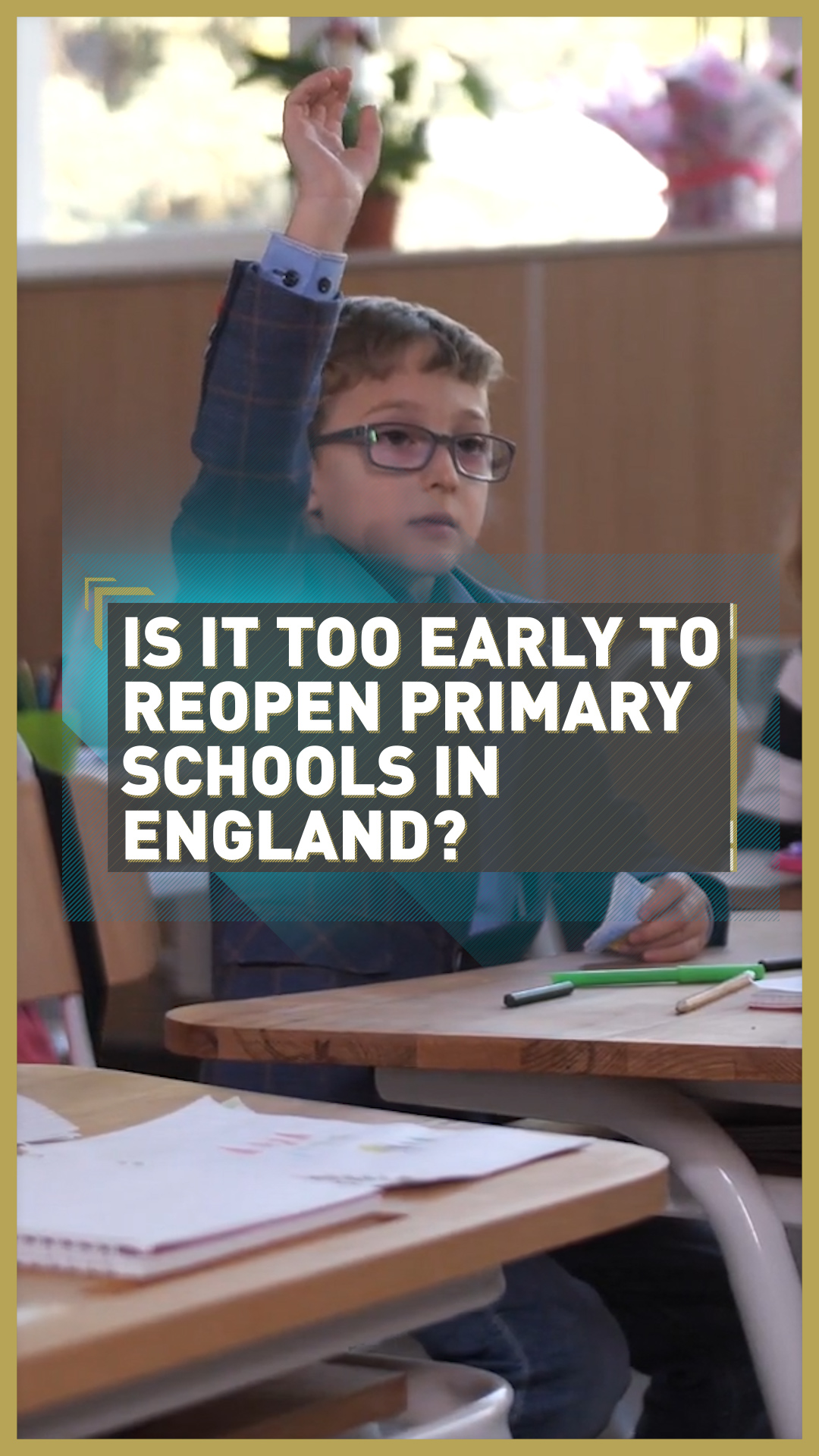02:56

The lockdown has been an excellent opportunity for 11-year-old Julia Hodkin Martinez to hone her cooking skills. Along with lasagne, she's also tackling French onion soup and chocolate mousse.
For the past ten weeks, her home has also been her classroom, with lessons emailed daily by her teachers. "It's okay because I can call my friends and we can do it together. And we have a back garden, so we still go outside," Julia told CGTN.
But from 1 June, some of the nearly five million primary school pupils in England will be going back to their classrooms.
The Prime Minister, Boris Johnson, has said his government's five tests for easing more lockdown measures had been met.
"Closing schools has deprived children of their education, and as so often, it is the most disadvantaged pupils who risk being hardest hit. On Monday, we will start to put this right in safe way," Johnson said at the regular Downing Street press conference on Thursday.
Our members are absolutely desperate to teach the children but it can only be done when it is safe
- Simon Kennedy, UK teachers' union, NASUWT
England is an outlier in the UK, with Scotland, Northern Ireland and Wales holding back on re-opening schools for now. It is a tense tightrope walk for the government, whose test and trace scheme to track the virus in the community launches the very same day.
Teachers are rushing to get new plans in place – including spaced out desks, split classes and staggered arrival and pick-up times. But they are likely to have their work cut out, enforcing youngsters to keep their social distance.

UK prime minister Boris Johnson has given UK schools the all clear to reopen from June 1. /AFP
UK prime minister Boris Johnson has given UK schools the all clear to reopen from June 1. /AFP
Primary schools have been quiet for more than two months, with just a handful of vulnerable and keyworkers' children attending. Now those in the pre-school years, the reception and first years, and sixth years are set to return. Parents are, however, not legally compelled to send their children back, and it is unclear how many parents will choose to keep their children away.
Teachers unions say that with so much unknown about COVID-19, it is too soon.
"It's not that we're saying we don't want to get back to work," said Simon Kennedy, North-East England Organizer for the NASUWT union.
"Our members are absolutely desperate to teach the children, but it can only be done when it is safe for the teachers and their families, for the children who are coming in and their families at home. When you have 54,000 people being infected every week, there is no way that it is the right time to open schools," he told CGTN.
READ MORE from our new series looking at how the pandemic is changing our lives. The New Normal: Education
Julia's mother Angela Martinez Acacio agrees, and plans to see how things look in another two weeks' time. Until then, Julia will continue her studies at home in Surrey, to the south of London. Initially, she and her husband were not on the same page.
"My husband was inclined to send Julia already because Year six is a key year, it's a transitional year to secondary [school]," she told CGTN.
"I was less inclined because I was still concerned with the rate of infection. I'm still concerned with how little we know about the virus. And I'm actually very little concerned about the fact that she will miss a couple of weeks. Academically she's doing great.”
Her husband is now of the same view that a wait-and-see approach is best for their family.
Balancing the need to maintain young minds amid a health crisis and getting more people back to work is something politicians, parents and teachers here are still grappling with.
Check out The Pandemic Playbook, CGTN Europe's major investigation into the lessons learned from COVID-19
Video Editor: Riaz Jugon